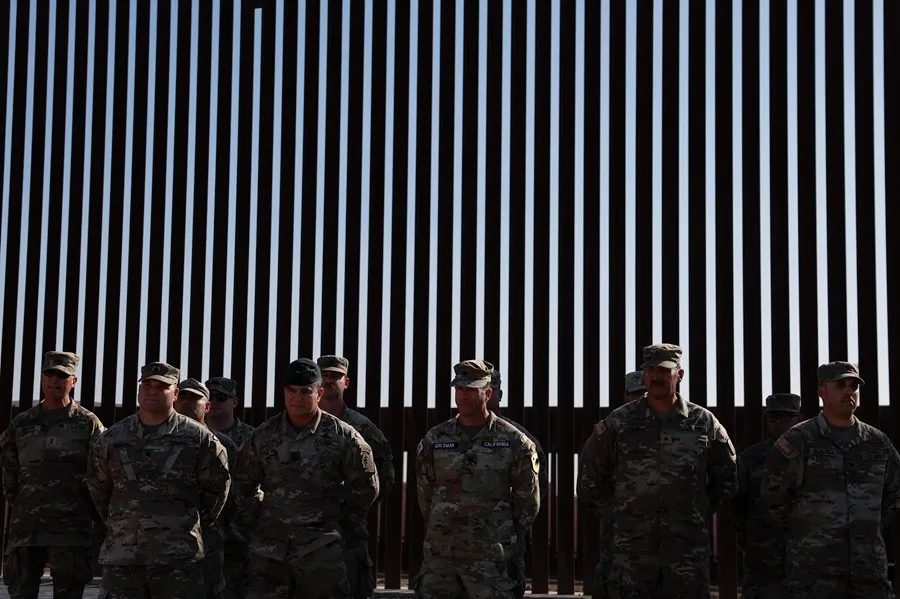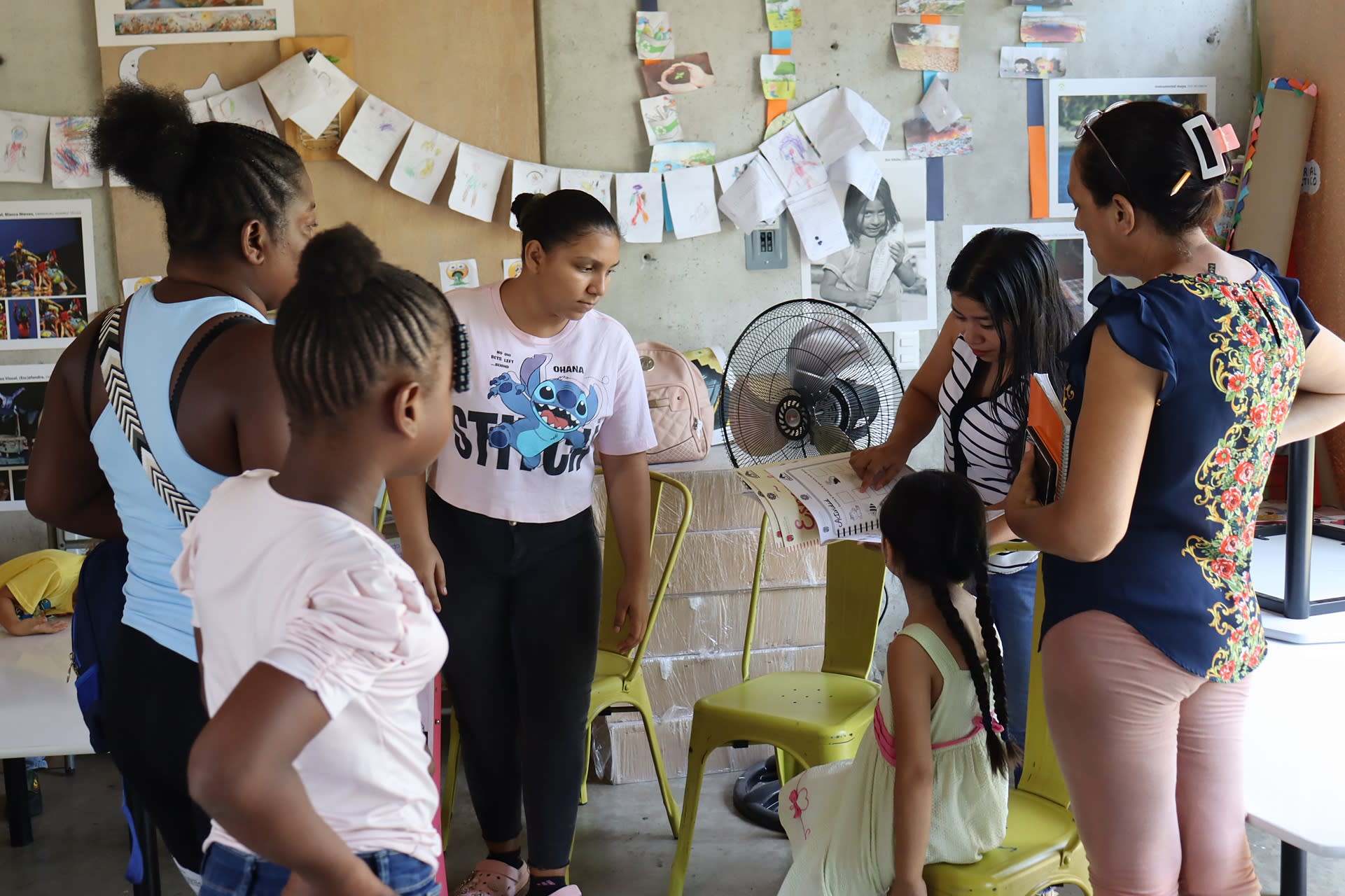International
The United States begins the deployment of 1,500 soldiers on the border with Mexico

The United States Government began this Wednesday the deployment of about 1,500 soldiers on the border with Mexico, thus taking the first step to fulfill the promise of President Donald Trump to “close” the passage of migrants and strengthen border security.
The White House spokeswoman, Karoline Leavitt, explained this Wednesday in statements to journalists that the president signed the executive order for that deployment on Monday and the Pentagon later confirmed that it has already mobilized to comply with it.
The acting Secretary of Defense, Robert Salesses, said on Wednesday that he has authorized three actions that will begin today. First, the sending of those troops and helicopters and their respective personnel, as well as intelligence analysts to assist in the detection and control work.
According to his figures, this represents a 60% increase in the number of active forces on the ground since Trump took office on Monday.
The Pentagon will also provide military air transport to support the deportation flights of more than 5,000 “illegal aliens” from San Diego, California, and El Paso, Texas, detained by Customs and Border Protection.
The Department of Homeland Security (DHS), according to its statement, will be responsible for enforcing the law and the State “will obtain the necessary diplomatic authorizations and notify the host country.”
The Pentagon added that it will “begin to help in the construction of temporary and permanent physical barriers to add security and reduce illegal border crossings and illicit trafficking.”
“This is just the beginning,” the Secretary of Defense emphasized in his note.
Leavitt in turn stressed that these measures are something “for which Trump campaigned.”
“The American people were waiting for a moment like this, in which the Department of Defense takes national security seriously. It is a number one priority for the American people and the president has already fulfilled it,” he said.
The 1,500 troops will be added to the 2,200 active military and the 4,500 Texas National Guard reservists who are already deployed at the border.
As CNN explained, the new troops will perform functions similar to those of the personnel already present, focused on supporting the Customs and Border Protection (CBP) with logistical and administrative tasks, such as vehicle maintenance and data entry.
During his first term (2017-2021), Trump ordered the sending of 5,200 troops to the border with Mexico.
This Monday, hours after assuming the presidency again, he signed an executive order that instructs the Pentagon to mobilize the troops necessary to achieve “complete operational control of the southern border of the United States”.
The order also establishes that Trump will evaluate in the next 90 days the possibility of invoking the Insurrection Law of 1807, which would allow the military to assume law enforcement functions within the country, in a role closer to that currently played by the security forces.
Currently, the troops deployed at the border are not authorized to carry out police tasks, such as arresting migrants or seizing drugs. In the United States, laws such as the Posse Comitatus of 1878 prohibit the armed forces from acting as police in the national territory.
Central America
Trump Administration Asks Supreme Court to Block Return of Deported Salvadoran

The Trump administration on Monday asked the U.S. Supreme Court to block a lower court order requiring the return of a Salvadoran migrant who was mistakenly sent to a maximum-security prison in El Salvador, despite having legal protection from deportation.
The U.S. government has until Monday to bring Kilmer Armado Ábrego García back to the United States, as ordered by Judge Paula Xinis in a Maryland court.
According to The Washington Post, the administration argues it lacks authority to comply because Ábrego García is currently in Salvadoran custody.
The U.S. had appealed Judge Xinis’ ruling to the Fourth Circuit Court of Appeals, but the court declined to act immediately—prompting the administration to take the case to the Supreme Court. In its filing, the government stated that “the Constitution entrusts the President, not federal district courts, with the conduct of foreign diplomacy and the protection of the nation from foreign terrorists, including through deportation.”
Ábrego García, a resident of Prince George’s County, Maryland, and married to a U.S. citizen, came under scrutiny in 2019 after an informant claimed he was a member of the MS-13 gang (Mara Salvatrucha).
Although he was initially slated for deportation, a judge later granted him a stay of removal after he requested asylum, according to the lawsuit.
Nevertheless, U.S. Immigration and Customs Enforcement (ICE) detained him on March 12, claiming his status had changed, and sent him to a detention center in Texas.
International
Teachers in Southern Mexico Bring Education to Stranded Migrant Children

Teachers in southern Mexico have created a program to provide classes for migrant children stranded in the region, following a year-over-year increase of over 70% in irregular migration among minors—many of whom lose months or even years of education during their journey toward North America.
In Tapachula, the largest Mexican city bordering Central America, three teachers offer preschool, elementary, and secondary education through the Chiapas State Migrant Education Program (Pemch).
This initiative has been replicated in key municipalities across Chiapas, including San Cristóbal de Las Casas, the capital Tuxtla Gutiérrez, Palenque, Comitán, and other border towns. Currently, there are around 1,345 migrant students and a total of 35 teachers working across farms and shelters.
Pablo Arriaga Velázquez, a teacher with the migrant education program in Tapachula, told EFE that the project was born in response to the large number of migrant minors, as enrolling them in regular schools is often difficult.
Central America
Mulino and Orsi Highlight Shared Vision After Panama Joins Mercosur as Associate State

The Presidents of Panama, José Raúl Mulino, and Uruguay, Yamandú Orsi, highlighted on Monday the path of integration both countries have undertaken in areas such as trade and the defense of democracy, following a meeting held at the Panamanian government headquarters.
In a brief statement to the press, both leaders emphasized that Panama and Uruguay share many values and are working together across different sectors. They also underlined a renewed connection following Panama’s accession last December to the Southern Common Market (Mercosur) as an Associated State.
“Panama has begun a new era of looking southward, seeking opportunities not only for work, business, and friendship, but also for regional integration in a positive sense. Today, I believe we have taken a decisive step in that direction,” said President Mulino.
The Panamanian leader stressed that his country and Uruguay “have much in common” and share “important values in terms of democracy, respect for institutions, and the rule of law—principles that must always be strengthened, no matter how much effort it takes.”
-

 Internacionales2 days ago
Internacionales2 days agoErik Prince Backs Ecuador’s Daniel Noboa in Fight Against Crime and “Narcoterrorism”
-

 Central America4 days ago
Central America4 days agoPanama’s former president Martinelli claims political enemies tried to kill him
-

 Central America2 days ago
Central America2 days agoGuatemala’s Legal Chief Shot Dead in Parking Lot: Investigation Underway
-

 International4 days ago
International4 days agoJavier Milei vows to work ‘side by side’ with the U.S. on trade rules
-

 Central America15 hours ago
Central America15 hours agoHonduras Hosts CELAC Summit Amid Regional Concern Over U.S. Deportations
-

 International15 hours ago
International15 hours agoTeachers in Southern Mexico Bring Education to Stranded Migrant Children
-

 Central America15 hours ago
Central America15 hours agoMulino and Orsi Highlight Shared Vision After Panama Joins Mercosur as Associate State
-

 Central America15 hours ago
Central America15 hours agoTrump Administration Asks Supreme Court to Block Return of Deported Salvadoran















